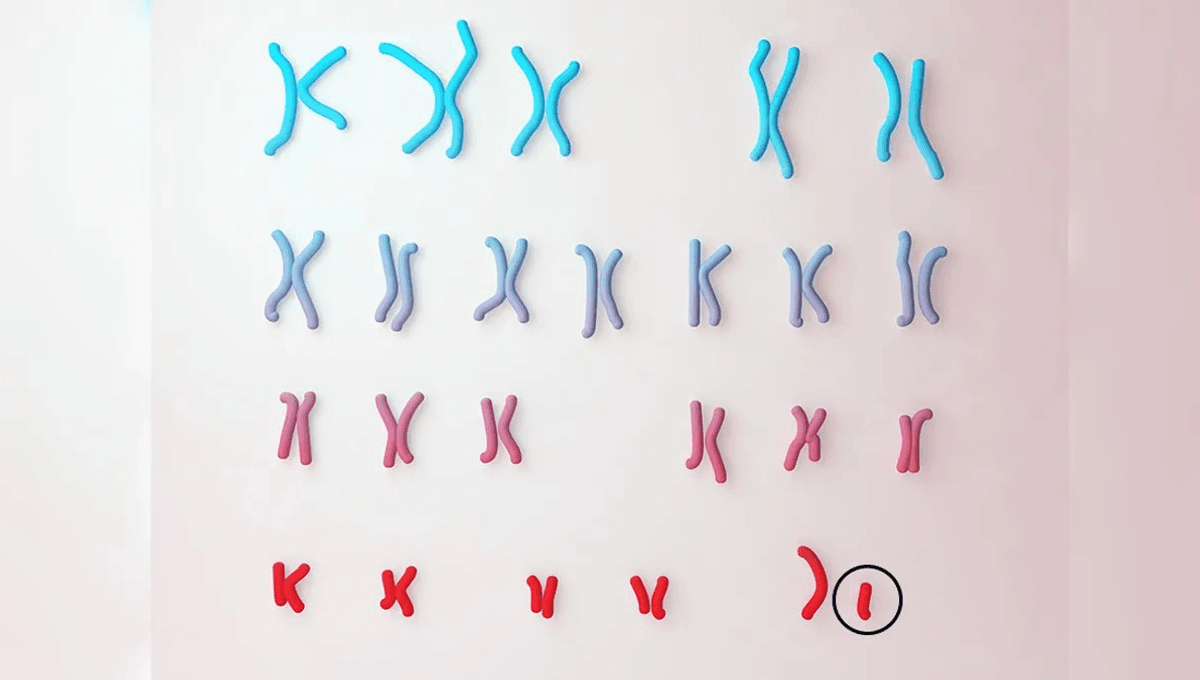
For the first time, researchers have fully sequenced the sex chromosomes of non-human primates, revealing how the male-specific Y chromosome is evolving at an incredible speed while the X chromosome remains largely static. Comparing these findings to the human genome, the study authors discovered that our own species is very much part of this evolutionary dance, with a rapidly-changing genetic code along the male sex chromosome.
All humans have 23 pairs of chromosomes, one of which comprises the sex chromosomes. For females, this entails two X chromosomes, while males have one X and one Y.
The researchers behind the new study generated complete end-to-end reference genomes for the X and Y chromosomes of five great apes – including chimpanzees, bonobos, gorillas, Bornean orangutans and Sumatran orangutans – as well as one lesser ape, the siamang gibbon.
Throwing humans into the mix, the researchers were able to compare the readouts for seven different primates. In doing so, they found that Y chromosomes tend to differ massively between species, while X chromosomes are largely alike.
For instance, over 90 percent of ape X chromosome sequences match up with the human X chromosome, indicating a relatively small degree of change across millions of years of evolution. In contrast, only 14 to 27 percent of ape Y chromosomes align with the human version, suggesting an enormous amount of rapid change.
“The extent of the differences between the Y chromosomes of these species was very surprising,” said study author Kateryna Makova in a statement. “Some of these species diverged from the human lineage only seven million years ago, which is not a lot of time in terms of evolution. This shows that the Y chromosomes are evolving very fast.”
Such extensive variation is likely due to the fact that the Y chromosome doesn’t exchange much genetic information with other chromosomes, which means it tends to pick up a lot of deletions and other types of mutations. As a consequence, the Y chromosome has been getting progressively shorter over time.
“We found the ape Y to be shrinking, accumulating many mutations and repeats, and losing genes,” said Makova. “Because of this degradation, the Y chromosome has been suggested to be on its way towards extinction in mammals,” write the study authors in their paper.
However, the team found that while the Y chromosome may be getting smaller, it’s unlikely to vanish completely as some of its genes are “evolving under purifying selection.” In other words, certain genes are protected by safety mechanisms that keep important sequences intact.
One of these survival strategies involves the use of palindromes, which entail gene sequences that repeat in a mirror image of each other, creating two identical copies that butt ends. As a result, any damage that occurs to one copy can be fixed by exchanging information with the adjacent stretch of matching DNA.
“Having these genes in palindromes is like keeping a backup copy,” says study author Adam Phillippy. According to the researchers, the genes protected by palindromes tend to vary greatly from species to species, although many are involved in spermatogenesis.
Given that the Y chromosome is essential for the continued existence of males, these purifying selection mechanisms provide a vital safety net for the future of humankind. And despite previous suspicions that the XY combo may soon be a thing of the past, Makova insists that “the Y chromosome is unlikely to disappear any time soon.”
The study has been published in the journal Nature.
Source Link: The Human Y Chromosome Is Evolving Way Faster Than The X Chromosome